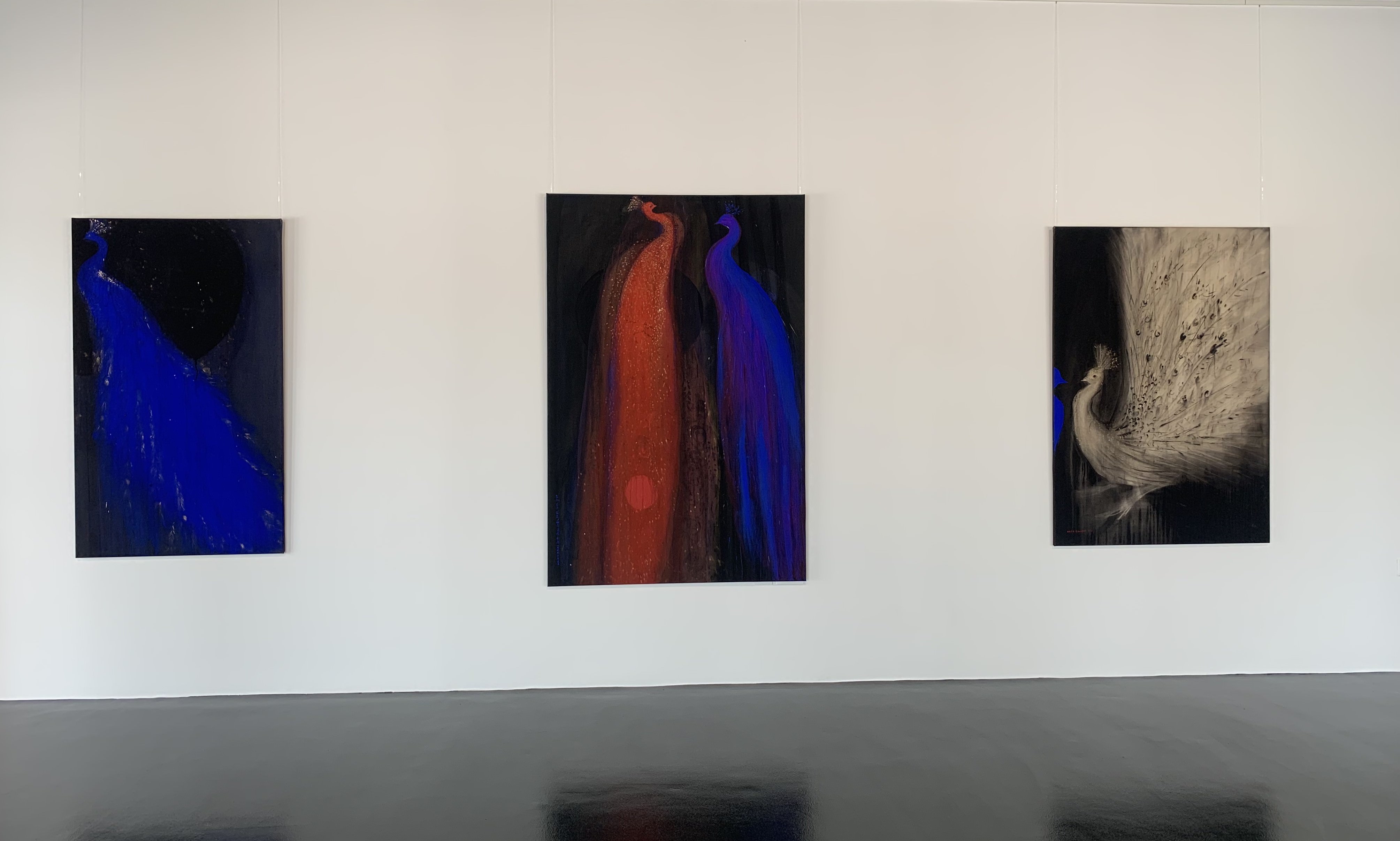Of Lebanese origin and born in Syria in 1979, Walid El Masri began his artistic journey in the ancient craft of mosaic making. This early immersion shaped his sensitivity to texture and detail before he entered the Damascus Faculty of Fine Arts, graduating in 2005. His studies deepened under the artist Marwan at the Darat Al Funun Summer Academy in Jordan, a period that expanded his expressive language. A well-known painter based in Damascus for many years, Walid exhibited widely across Syria, London, Paris, Lebanon, Egypt, and the Gulf States. His move to France in 2011 marked a new chapter, where he continued painting and drawing, weaving his past into new visual explorations. Beyond his solo practice, Walid also took part in group exhibitions at the Busan Museum of Art in South Korea (2014); the Institut du monde arabe in Paris (2014 and 2018); the MUCEM in Marseille (2014); and the Institut des Cultures d’Islam in Paris (2020).
His early series Chairs, created between 2004 and 2011, revealed a vigorous, raw hand marked by bold gestural strokes. These empty seats whisper of absence and solitude, inviting contemplation of unseen presences and forgotten stories. The paintings become silent rooms where memory and loss linger, a poetic meditation on human isolation and the spaces we leave behind.
The series Cocoons, painted from 2014 to 2017 after Walid’s exile, offers a quiet, haunting response to Syria’s upheaval and personal displacement. White, oblong forms hang suspended from a lone tree, poised between earth and sky, caught in a fragile dance of transformation. These cocoons, both cradle and shroud, embody the tension between death and rebirth. The artist’s reflection on the cocoon’s dual nature, life and death intertwined, evokes a delicate hope amid despair, a metaphor for resilience and surrender alike.
In 2015, Walid turned to the Children series, portraying naked infants with swollen faces drifting across vast canvases. Their dark, vacant eyes speak of innocence interrupted, of a childhood stolen by tragedy. These spectral figures float between oblivion and memory, embodying the fragile humanity caught in the crossfire of conflict. Yet amid this sorrow, the paintings strive to restore a glimmer of lost innocence, a silent plea for healing. The haunting presence of these children lingers, evoking empathy and a powerful reminder of the cost of war on the most vulnerable. Their presence in the vast, empty spaces speaks not only to loss but also to the enduring spirit of those who survive against all odds. Their fragile forms, suspended in silence, become both witness and testament to lives disrupted yet persistently hopeful.
The Peacocks, begun in 2018, place a majestic bird at the heart of Walid’s vision. The peacock’s shimmering feathers and mournful call resonate like a solitary lament echoing through ancestral tales. This sacred creature, a symbol of beauty and vulnerability, embodies the artist’s reverence for life’s fragile splendor. Through it, myth and memory entwine, creating a poetic testament to endurance and grace.
Walid El Masri’s work unfolds as a profound visual narrative where exile, memory, and beauty intertwine. His canvases become sacred spaces where silence speaks, absence sings, and the unseen finds form. Through his evocative brushwork and haunting imagery, he offers a meditation on loss and transformation, reminding us that even in darkness, art can kindle hope and reveal the fragile light of resilience.






